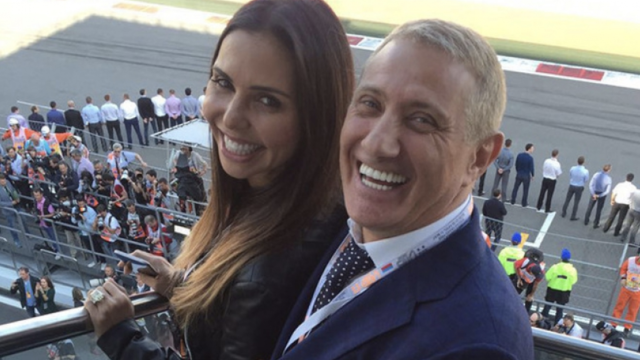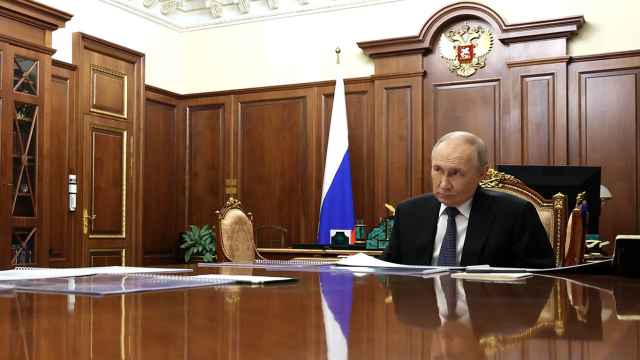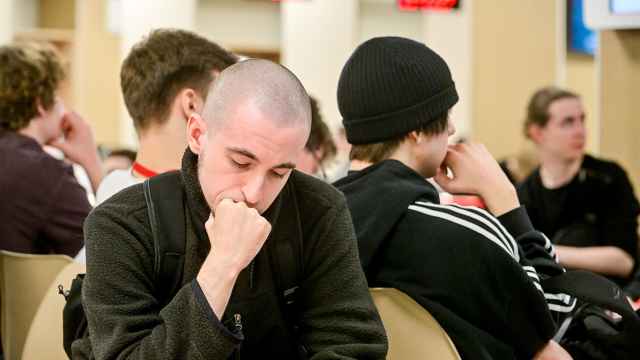Last week's EU-Russia summit can be considered a foreign policy victory for President Vladimir Putin. That might sound paradoxical given the unusually cool reception he received in Brussels. But in politics, substance is always more important than form, and the content of the summit boils down to one thing: Russia and Europe have no items left on the agenda that could form the basis of a meaningful dialogue. That would be strange if Russia considered itself part of Europe, but Putin is convinced that Russia is part of Eurasia. Thus, for him, the absence of a meaningful agenda with Europe can be considered normal. After all, nobody is surprised by the lack of any meaningful dialogue between Russia and Africa.
The growing gap between Russia and Europe is a strategic success for Putin, but it is a strategic defeat for the EU.
In contrast, most European politicians consider Russia as a part of Europe. At the same time, however, they have narrowed the agenda with Russia to only two main discussion points: creating a visa-free regime and limiting opportunities for Gazprom in the European market. Negotiations on both issues were difficult, but when Europe added the question of Ukraine to the agenda, it was clear that nothing would result from this summit. It is well known that for Putin, foreign policy is a zero-sum game. That is why any attempt to persuade him that he is behaving improperly toward a neighboring country is doomed to failure.
The past five years have been the most difficult in the European Union's history. The financial crisis has brought the eurozone to the brink of collapse. It would seem that conducting any negotiations with as difficult and unfathomable a partner as Putin's Russia would only distract European politicians from resolving their domestic problems. That would be true if not for one thing: Russia and Europe are neighbors and their fates are intertwined. Thus, the more Russia and the EU differ in their values and principles, the more likely they are to come into conflict with each another.
In the early 2000s, Putin wanted to establish closer relations with the West, including Europe, but he was unable to offer his Western partners a clear picture of the principles on which those relations could be built. When NATO expanded all the way to Russia's borders in 2004 and Washington announced plans to build a European missile defense system, relations between Europe and Russia shifted from partnership to confrontation. At that point, Moscow lost interest in pursuing a dialogue on economic and humanitarian issues. To make matters worse, the 2008 financial crisis spoiled whatever appeal the Western economic model might have held for Putin.
It turns out that the lack of interest in meaningful dialogue is mutual. European politicians cannot understand that the widening ideological gap with Russia forces them to choose between either abandoning their values or curtailing further dialogue with Putin. At the same time, those same politicians are well aware that the European investment in Russia may help revive Europe's domestic economy. This helps contain harsh statements or actions the EU might take against Putin, which could result in reprisals directed against European companies in Russia.
In the end, Europe chose the worst possible path: pretending to hold a "meaningful dialogue" with Putin but without any substance. As a result, Russia and Europe are growing farther apart, and the creation of a rival to the EU — a Moscow-driven Eurasian alliance with former Soviet republics — is now looking more like a grim reality.
This growing gap with Europe represents a strategic success for Putin. By constructing a new "Berlin Wall," Putin can retain his authoritarian system. This is a system that has no place for democratic values, human rights, rule of law or political and economic competition.
But for the EU, the growing gap with Russia represents a strategic defeat because Putin's system cannot survive over the long term. No matter how it ultimately crumbles, that breakdown will reverberate throughout the entire European continent.
Nonetheless, Europe still has a chance at rapprochement with Russia. Brussels can start an open dialogue on future EU-Russian relations with Russians who considers Russia an integral part of European civilization. If this kind of dialogue produces an outline for a future partnership between Russia and Europe, the EU could publicly offer Russian authorities that new agenda. And that would be a long-term agenda, regardless of who sits in the Kremlin or the Russian White House. It would be an agenda for building the future of the whole of Europe.
And I believe that Russia and Europe will eventually build such a future together.
Sergey Aleksashenko, former deputy finance minister and first deputy chairman of the Central Bank, is a visiting fellow at Georgetown University.
A Message from The Moscow Times:
Dear readers,
We are facing unprecedented challenges. Russia's Prosecutor General's Office has designated The Moscow Times as an "undesirable" organization, criminalizing our work and putting our staff at risk of prosecution. This follows our earlier unjust labeling as a "foreign agent."
These actions are direct attempts to silence independent journalism in Russia. The authorities claim our work "discredits the decisions of the Russian leadership." We see things differently: we strive to provide accurate, unbiased reporting on Russia.
We, the journalists of The Moscow Times, refuse to be silenced. But to continue our work, we need your help.
Your support, no matter how small, makes a world of difference. If you can, please support us monthly starting from just $2. It's quick to set up, and every contribution makes a significant impact.
By supporting The Moscow Times, you're defending open, independent journalism in the face of repression. Thank you for standing with us.
Remind me later.







